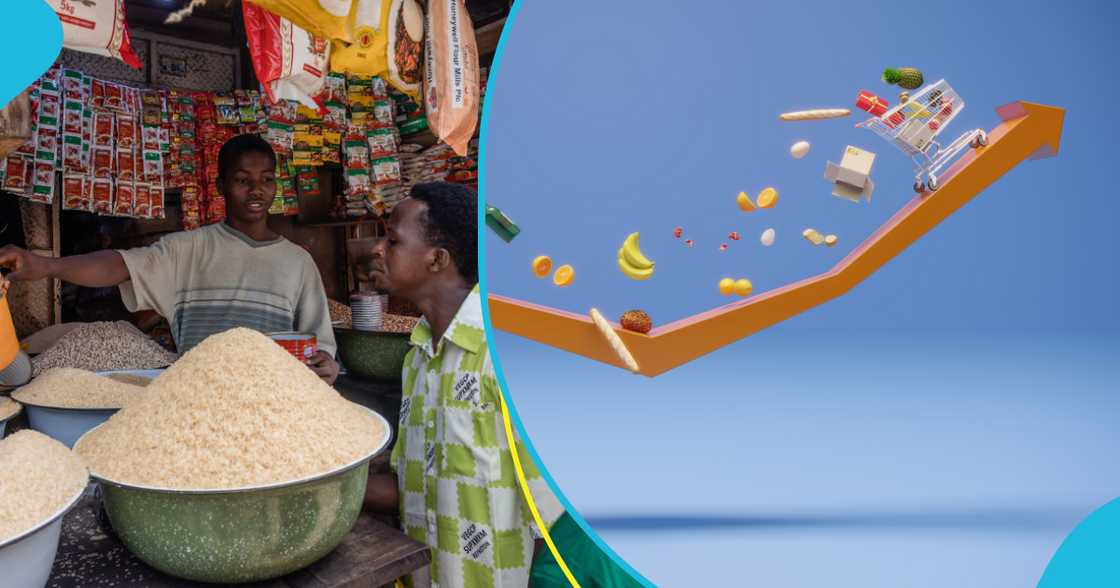FABAG Urges Government To Scrap Duties On Essential Commodities
- The food and Beverages Association of Ghana (FABAG) has made a case for the removal of duties on essential commodities
- Taking inspration from developments in Nigeria, FABAG said removing duties on rice, oil and maize could reduce food inflation and address food insecurity in the country
- The Association argued that the ongoing drought in the northern sector of Ghana should push the government to act now
The Food and Beverages Association of Ghana (FABAG) has appealed to the government to eliminate all duties on essential commodities imported into the country.
FABAG’s plea follows concerns about rising food insecurity in the country partly due to the ongoing drought in northern Ghana.

Source: Getty Images
Taking inspiration from Nigeria, where the government has removed duties on essential food items as part of its Presidential Accelerated and Stabilisation Advancement Plan to curb rising food inflation, FABAG said the government of Ghana should adopt a similar measure to stall skyrocketing food inflation.
According to FABAG, rice, maize, and oil should be exempt from duties as they form the basis for many staples in the country.
PAY ATTENTION: All celebrity news in one place! Follow YEN's Facebook Broadcast channel and read on the go.
FABAG said the measure would enhance food accessibility, ease households' financial burden, and mitigate malnutrition in vulnerable populations.
The Executive Chairman of FABAG, John Awuni, said if the policy is implemented, the imported essential commodities should be protected from being re-exported to neighbouring countries.
He said lax market monitoring would lead to imported products being smuggled into neighbouring countries, preventing them from having the positive effects expected in the country.
He expressed worry that the recent spike in food inflation in the country could have dire consequences for households and national security if it is not tackled.
Northern Ghana battles drought as food insecurity looms
Meanwhile, northern Ghana is facing a severe drought, generating widespread concern about food security.
Hundreds of farmers in Ghana’s northern sector are counting their losses following a lack of rain for over two months.

Read also
Food insecurity concerns ramp up as drought causes crops to wither in Ghana's northern sector
The drought has stunted crops and withered them, dimming hopes of a successful harvest.
The drought has badly hit rice, maize, groundnut and millet crops, leading to a sharp drop in food production and concerns about a potential food shortage and a looming famine.
As the drought continues, farmers have called on the government and agricultural organisations to help find a solution.
Stephen Darko, the Chief Agriculture Technical Officer in Nkwanta South, has warned that the government’s planting for food and jobs programme would struggle to meet its target if the rains do not come.
He has urged the government to implement measures to safeguard food production in the drought-hit areas.
Inflation sees a massive drop
YEN.com.gh reported that the growth of prices slowed from 35.2% in October to 26.4% in November 2023, according to the government statistician.
November is the fourth consecutive month in which inflation has dropped in the wake of Ghana's economic crisis.
Inflation reached 26.4% in November, an 8.8-percentage-point decrease from the 35.2% recorded in October 2023.
Proofread by Berlinda Entsie, journalist and copy editor at YEN.com.gh
PAY ATTENTION: Stay informed and follow us on Google News!
Source: YEN.com.gh



